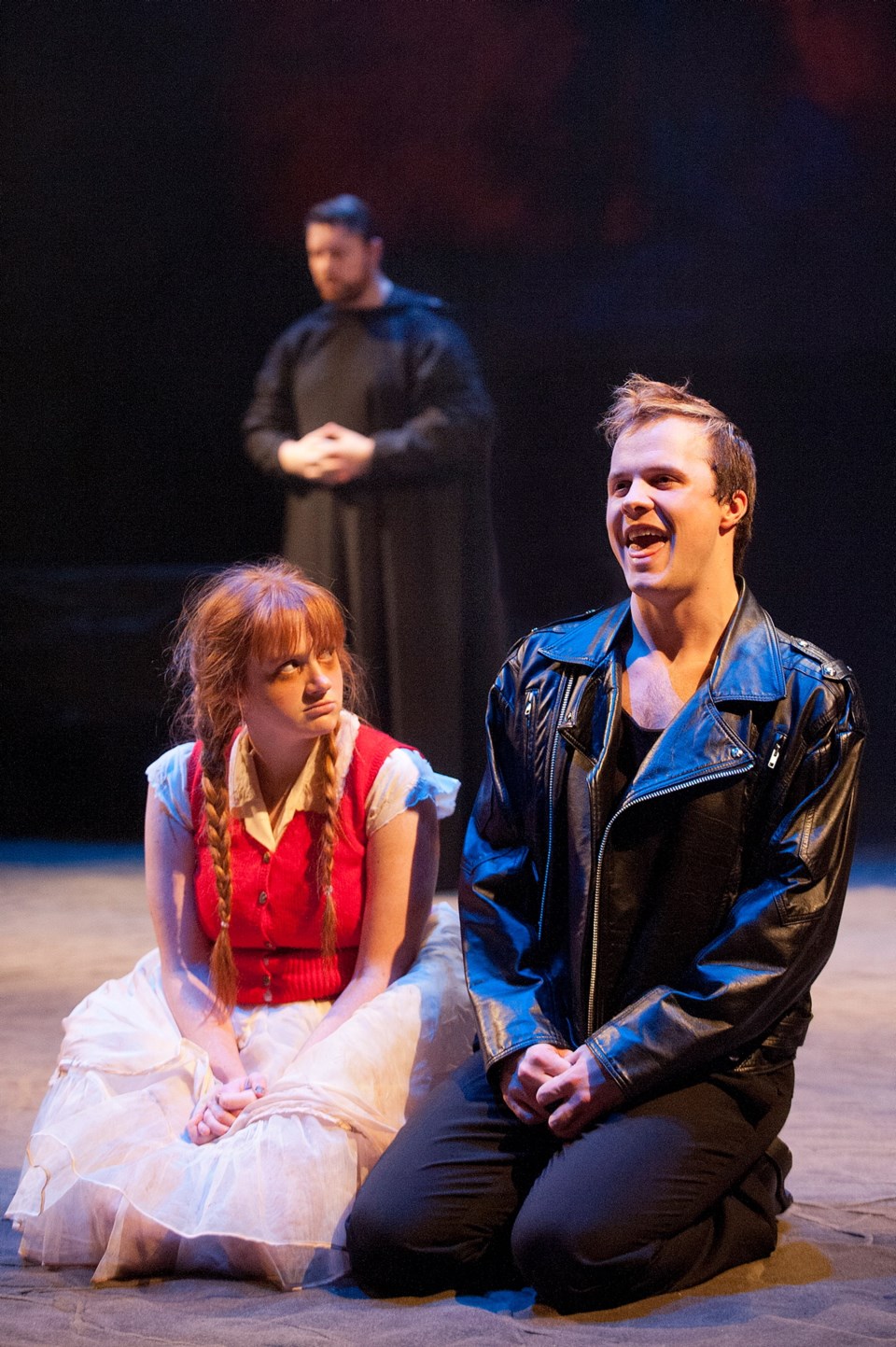What: Lion in the Streets
Where: Phoenix Theatre, University of Victoria
When: To Feb. 21
Tickets: $14, $20, $24; 250-721-8000
Canadian playwright Judith Thompson isn’t kidding when she says her dramas are inspired by life’s gritty realities.
Thompson recalls that her 1990 play Lion in the Streets (being staged by the University of Victoria’s theatre department) was partly a response to the murder of Sharin’ Morningstar Keenan. The nine-year-old girl was found dead in a Toronto flophouse in 1983.
“It was really deeply imprinted on me,” Thompson, 60, said this week.
“The police van went around all night, saying, you know, has anyone seen a girl, nine years old, with a plaid skirt. It turned out later, at that time, she was being raped and murdered just up the street.”
In Lion in the Streets, opening tonight at Phoenix Theatre with a student cast, the ghost of a murdered Portuguese immigrant girl exists in limbo, observing emotional scenes between different people.
They include a woman who attempts to lure her husband with a grotesque striptease, a woman who tells a friend she has inoperable cancer and a parent enraged about the sugar-stuffed snacks doled out in daycare.
One of the country’s most admired playwrights, Thompson has a penchant for delving into shocking material with imagination and bravery. Typically, The Crackwalker, staged by Theatre Inconnu in 2012, is about booze-and-drug-imbibing low-lifes living in a Dickensian hell (one couple discovers their newborn, existing solely on baloney, doesn’t live long).
Lion in the Streets seems as if it would be disturbing fare for actors, especially young performers. Yet Thompson, who recently directed the drama for a Ryerson University cast, says they loved it.
“They handle it; they had no problem with it at all,” says the playwright.
Conrad Alexandrowicz, director of UVic’s Lion in the Streets, says his cast immediately embraced Thompson’s dark vision.
“Listen, these kids, are you kidding me? Young people these days are, well, they’ve seen it all. They grow up very quickly in a digital age,” he said.
Thompson, who teaches acting and playwrighting at the University of Guelph, continues to examine difficult subjects. Last year, she starred in her play Watching Glory Die, about Ashley Smith, the 19-year-old who choked herself to death in an Ontario jail as guards looked on. Another recent project was DARE, a Thompson play in which actors with Down Syndrome tell their real-life stories.
For this dramatist, “there’s nothing like the authentic voice.”
When teaching playwrighting, Thompson advises students to reach emotional truths by writing about a transformational moment in their own lives.
“The stories are always absolutely incredible. Unfortunately, it’s usually the best work two-thirds of them will ever do,” she says with a laugh.
Tellingly, the scene in Lion in the Streets in which a woman reveals her cancer diagnosis is rooted in Thompson’s own life. When she was 33 years old, doctors discovered spots on her liver. The blemishes turned out to be benign, but she was “absolutely terrified” while waiting for the results.
“I just got a glimpse of what that might be like,” she said. “I just take a glimpse and I explode it.”
In this scene and in her other plays, Thompson deftly captures the rhythms and colours of working-class speech. This, she says, is part of a long Canadian tradition that includes Theatre Passe Muraille’s collectively created work The Farm Show (1972), and plays by Michel Tremblay written in the colloquial French-Canadian dialect known as joual.
“[The working class] create their own language, whereas ours is homogenized by education. So we speak in a very boring way. They create a very rich, local language. And it’s got a music all its own.”
